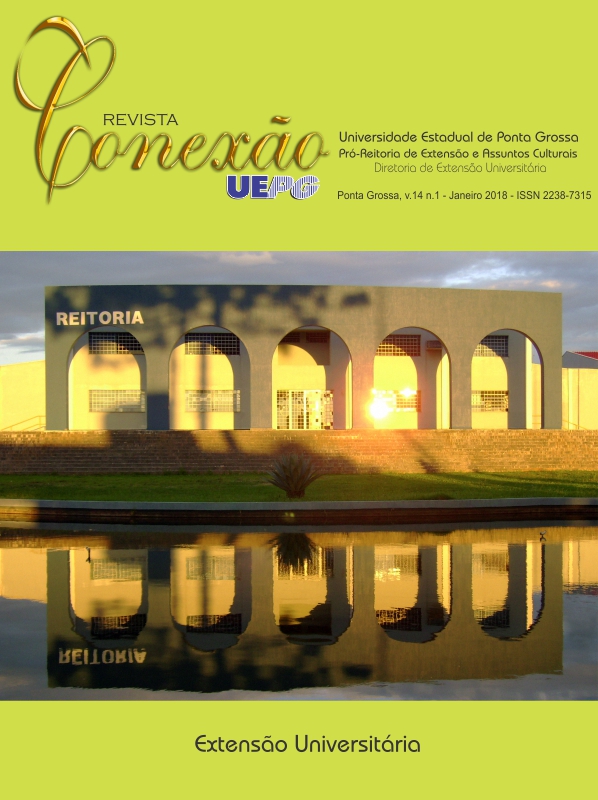DISCUTINDO A CULTURA DE PAZ COMO CAMINHO PARA PROMOÇÃO DA IGUALDADE RACIAL NAS ESCOLAS
DOI:
https://doi.org/10.5212/Rev.Conexao.v.14.i1.0014Palavras-chave:
cultura de paz, igualdade racial, escolas.Resumo
Este trabalho apresenta um relato da experiência desenvolvida pelo projeto de extensão universitária “Na Paz: Estratégias para a Promoção da Igualdade Racial e de Gênero nas Escolas”, do Curso de Serviço Social da ULBRA. Realizamos uma contextualização do racismo no Brasil, trazendo apontamentos sobre os impactos da escravização para o desenvolvimento sócio-histórico do país e para a consolidação da cidadania plena deste segmento. Em seguida, apresentamos uma reflexão sobre a cultura de paz e o papel da escola na promoção da igualdade racial. O trabalho com alunos do Ensino Médio aposta na desconstrução de alguns mitos sobre racismo, democracia racial e discriminação racial. Esta atividade tem apresentado resultados positivos, especialmente no que se refere ao envolvimento dos jovens na discussão dos temas propostos. Esses resultados apontam para o potencial que a escola possui na transformação das relações raciais no Brasil.
Downloads
Referências
ABRAMOVAY, Miriam et al. (Coord.). Conversando sobre violência e convivência nas escolas. Rio de Janeiro: FLACSO - Brasil, OEI, MEC, 2012.
BORGES, Edson; MEDEIROS, Caros Alberto; D’ADESKY, Jacques. Racismo, preconceito e intolerância. São Paulo: Atual, 2002.
CARRARA, Sérgio. Educação, diferença, diversidade e desigualdade. In: Gênero e Diversidade na Escola. Livro de Conteúdos. Brasília: MEC, 2009, p. 09-22.
CARVALHO, José Murilo. Cidadania no Brasil - o longo caminho. 7.ed. Rio de Janeiro: Civilização Brasileira, 2007.
CARONE, Iray; BENTO, Maria Aparecida (Orgs.). Psicologia social do racismo: estudos sobre branquitude e branqueamento no Brasil. 2.ed. Petrópolis: Vozes, 2002.
CAVALCANTI, L. F.; ZUCCO, L. P.; SILVA, M. V. A Extensão Universitária na Prevenção na Violência Sexual. Revista Espaço para a Saúde. Londrina, v.6, n.2, p.23-28, jun. 2005.
D’ADESKY, Jacques. Pluralismo étnico e multi-culturalismo: racismos e anti-racismo no Brasil. Rio de Janeiro: Pallas, 2005.
DUPRET, Leila. Cultura de paz e ações sócio educativas: desafios para a escola contemporânea. Psicologia Escolar e Educacional, v. 6_ n. 1, p. 91-96, 2002.
FREITAS, Tais Pereira de; ENGLER, Helen Barbosa Raiz. Desigualdade racial nos espaços escolares e o trabalho do assistente social. Revista Serviço Social e Sociedade, São Paulo, n. 121, p. 32-47, jan./mar. 2015.
GUIMARÃES, Reinaldo. Considerações sobre um passado presente: o racismo no Brasil. Revista Debates Sociais, v. 10, n. 15, p. 28-44, jan. 2006.
HALL, Stuart. Da diáspora: identidades e mediações culturais. SOVIK, Liv (Org.). Belo Horizonte: UFGM, 2003.
INSTITUTO Brasileiro de Geografia e Estatística – IBGE (2015). Síntese dos Indicadores Sociais – SIS, 2015.
JESUS, Rita de Cássia Dias P. de; MILANI, Feizi M. (Orgs.). Cultura de paz: estratégias, mapas e bússolas. Salvador: INPAZ, 2003.
MARTINS, E. B. C. O Serviço Social no âmbito da política educacional: dilemas e contribuições da profissão na perspectiva do projeto ético político. Serviço Social na educação: teoria e prática. Campinas: Papel Social, 2012.
MUNANGA, Kabengele. Teorias sobre o racismo. In: Estudos e Pesquisas. Racismo: perspectivas para um estudo contextualizado da sociedade brasileira. Niterói/RJ: Editora da Universidade Federal Fluminense, 1998.
______. Rediscutindo a mestiçagem no Brasil: identidade nacional versus identidade negra. Belo Horizonte: Autêntica, 2004.
NASCIMENTO, Alexandre. Ação afirmativa: da luta do movimento negro às políticas concretas. Rio de Janeiro: CEAP, 2006.
PEREIRA, Amauri Mendes. Trajetória e perspectivas do movimento negro Brasileiro. Belo Horizonte: Nandyala, 2008.
SILVA, Ademir. A gestão da seguridade social brasileira – entre a política pública e o mercado. São Paulo: Cortez Editora, 2004.
UNESCO. Organização das Nações Unidas para a Educação Ciência e Cultura. Convenção sobre a proteção e promoção da diversidade das expressões culturais. Texto oficial ratificado pelo Brasil por meio do Decreto Legislativo 485/2006.
Downloads
Publicado
Edição
Seção
Licença
a) Os autores mantêm os direitos autorais e concedem à revista o direito de primeira publicação, com o trabalho simultaneamente licenciado sob a Creative Commons Attribution License que permite o compartilhamento do trabalho com reconhecimento da sua autoria e publicação inicial nesta revista.
b) Ao submeter um artigo à Revista Conexão UEPG e tê-lo aprovado os autores concordam em ceder, sem remuneração, os seguintes direitos à Revista: os direitos de primeira publicação e a permissão para que a Revista redistribua esse artigo e seus metadados aos serviços de indexação e referência que seus editores julguem apropriados.
c) Os leitores são livres para transferir, imprimir e utilizar os artigos publicados na Revista, desde que haja sempre menção explícita ao(s) autor (es) e à Revista Conexão UEPG e que não haja qualquer alteração no trabalho original. Qualquer outro uso dos textos precisa ser aprovado pelo(s) autor (es) e pela Revista.

Este obra está licenciado com uma Licença Creative Commons Atribuição 4.0 Internacional.





